第22章
A dog of no sort of caste stood in the veranda and barked at me offensively.I picked up a stone, and he vanished like the dog of a dream into the house.It was such a small house that it wasn't on the municipal map at all: it looked as if someone had built it for amusement with anything that was lying about.Nevertheless, it had a name, it was called Amy Villa, freshly painted in white letters on a shiny black board, and nailed against the nearest tree in the orthodox Simla fashion.It looked as if the owner of the place had named it as a duty towards his tenant, the board was so new, and in that case the reflection presented itself that the tenant might have cooperated to call it something else.It was disconcerting somehow to find that our dove had perched, even temporarily, in Amy Villa.
Nor was it soothing to discover that the small white object stuck in the corner of the board was Mr.Ingersoll Armour's card.
In Simla we do not stick our cards about in that way at the mercy of the wind and the weather; we paint our names neatly under the names of our houses with 'I.C.S.' for Indian Civil Service, or 'P.W.D.'
for Public Works Department, or whatever designation we are entitled to immediately after, so that there can be no mistake.This strikes newcomers sometimes as a little professional, especially when a hand accompanies, pointing; but it is the only possible way where there are no streets and no numbers, but where houses are dropped about a hilltop as if they had fallen from a pepper-pot.In sticking his card out like that Mr.Armour seemed to imagine himself au quatrieme or au cinquieme somewhere on the south side of the Seine; it betrayed rather a ridiculous lack of conformity.He was high enough up, however, to give any illusion; I had to stop to find the wind to announce myself.There was nobody else to do it if I except the dog.
I walked into the veranda and shouted.Then I saw that one end of it was partly glazed off, and inside sat a young man in his shirt-sleeves with his back to the door.
In reply he called out, 'That you, Rosario?' and I stood silent, taken somewhat aback.
There was only one Rosario in Simla, and he was a subordinate in my own office.Again the hateful need to explain.Between subordinate clerks and officials in Simla there is a greater gulf fixed than was ever imagined in parable.Besides, Rosario had a plain strain of what we call 'the country' in him, a plain strain, that is, of the colour of the country.It was certainly the first time in my official career that I had been mistaken for Rosario.
Armour turned round and saw me--that I was a stranger.
He got up at once.'Oh,' he said, 'I thought it was Rosario.
'It isn't,' I replied, 'my name is Philips.May I ask whether you were expecting Mr.Rosario? I can come again, you know.'
'Oh, it doesn't matter.Sit down.He may drop in or he may not--Irather thought he would today.It's a pull up, isn't it, from the Mall? Have a whisky and soda.'
I stood on the threshold spellbound.It was just the smell that bound me, the good old smell of oil paints and turpentine and mediums and varnish and new canvas that you never by any chance put your nose into in any part of Asia.It carried me back twenty years to old haunts, old friends, old joys, ideals, theories.Ah, to be young and have a temperament! For I had one then--that instant in Armour's veranda proved it to me forever.
'No thanks,' I said.'If you don't mind I'll just have the smell.'
The young fellow knew at once that I liked the smell.'Well, have a chair, anyhow,' he said, and took one himself and sat down opposite me, letting his lean brown hands fall between his knees.
'Do you mind,' I said, 'if for a minute I sit still and look round?'
He understood again.
'I haven't brought much,' he said, 'I left pretty near everything in Paris.'
'You have brought a world.' Then after a moment, 'Did you do that?'
I asked, nodding towards a canvas tacked against the wall.It was the head of a half-veiled Arab woman turned away.
The picture was in the turning away, and the shadow the head-covering made over the cheek and lips.
'Lord, no! That's Dagnan Bouveret.I used to take my things to him, and one day he gave me that.You have an eye,' he added, but without patronage.'It's the best thing I've got.'
I felt the warmth of an old thrill.
'Once upon a time,' I said, 'I was allowed to have an eye.' The wine, untasted all those years, went to my head.'That's a vigorous bit above,' I continued.
'Oh, well! It isn't really up to much, you know.It's Rosario's.
He photographs mostly, but he has a notion of colour.'
'Really?' said I, thinking with regard to my eye that the sun of that atrocious country had put it out.'I expect I've lost it,' Isaid aloud.
'Your eye? Oh, you'll easily get a fresh one.Do you go home for the exhibitions?'
'I did once,' I confessed.'My first leave.A kind of paralysis overtakes one here.Last time I went for the grouse.'
He glanced at me with his light clear eyes as if for the first time he encountered a difficulty.
'It's a magnificent country for painting,' he said.